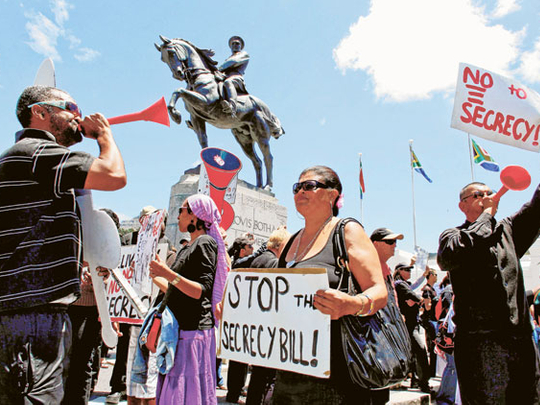
Johannesburg: South African lawmakers on Tuesday overwhelmingly approved a bill to protect state secrets that critics say will stifle expression.
The 259-41 vote with 32 abstentions came after months of fierce debate.
A range of opposition groups say they will challenge the measure at the Constitutional Court if it becomes law. The bill's critics included two Nobel prizewinners: peace laureate retired Archbishop Desmond Tutu and literature laureate Nadine Gordimer.
The office of Nelson Mandela, South Africa's first post-apartheid president and another Nobel peace laureate, also has expressed reservations about the bill.
Others who objected included newspaper editors, prominent writers, church groups, freedom of expression lobbyists, business leaders and others.
The governing African National Congress, which presented the bill, says South Africa needed to update apartheid-era legislation defining secrets and setting out punishments for divulging them.
The approval had been expected because the ANC holds a majority of parliament's seats, and party discipline is rarely violated. Parliament's upper house could ask for revisions, but that rarely happens. President Jacob Zuma will have to sign the bill to make it law, and while his legal advisers may ask for revisions, he was expected to do so.
Critics donned black and staged protests at the ANC's downtown Johannesburg headquarters during morning rush hour yesterday, saying the bill's weaknesses include its lack of a provision allowing those who break the law to avoid going to jail if they could argue they acted in the public interest.
Activists fear the adoption of the measure in a country known for one of the continent's freest and most open constitutions could influence other governments in the region.
In a statement late on Monday, Tutu said it is "insulting to all South Africans to be asked to stomach legislation that could be used to outlaw whistle-blowing and investigative journalism ... and that makes the state answerable only to the state."
Tutu won a Nobel Peace Prize for his nonviolent opposition to white rule. In more recent years, he has been a sharp critic of ANC moves he sees as undermining rule of law and weakening South Africa's fledgling democracy.











